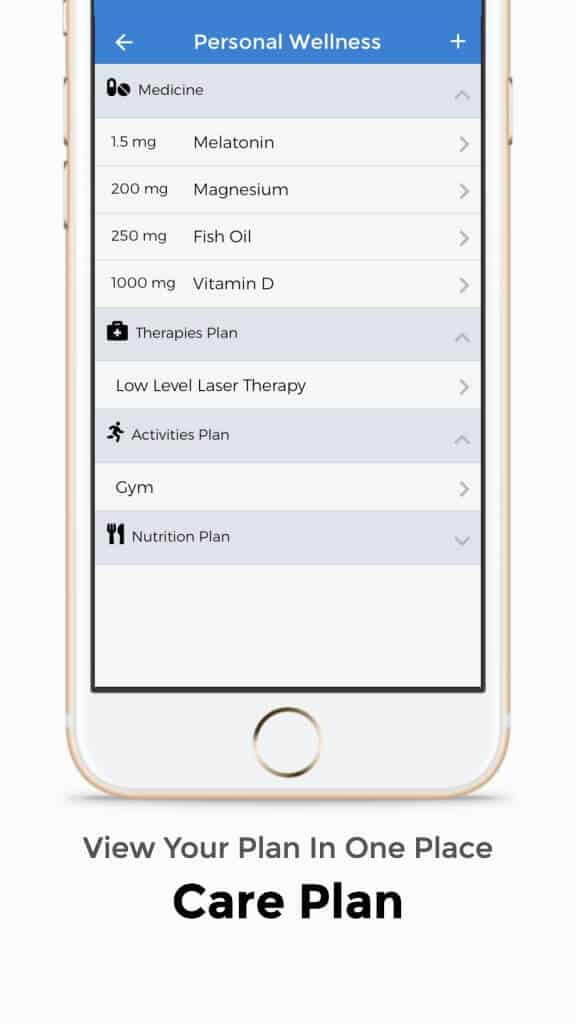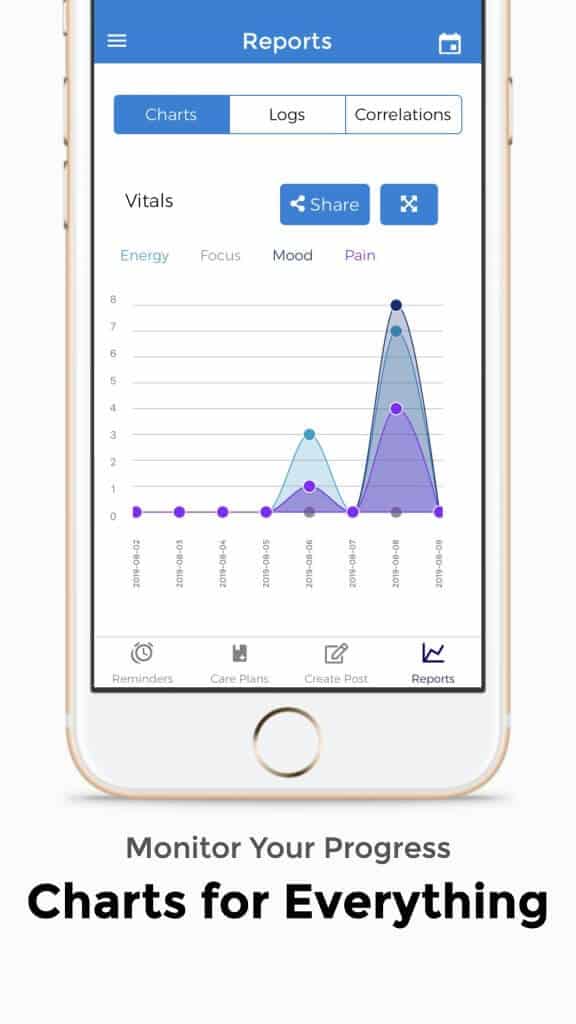
Modern life might offer a lot of advantages but at the same time, it forces us to rush and experience high levels of stress. We are often tired and suffer from headaches as we go from one task to the other without taking a break. This fast-paced lifestyle can cause us to become ill, with a higher risk of chronic conditions. This is why users have opted to keep a mindfulness meditation journal to unload any cognitive burden that can improve their daily quality of life.
If you are looking to make a change in your life and return to a slower rhythm, you might want to consider mindfulness and meditation as two of your options. These practices will help you achieve peace of mind and resilience in front of daily stress, being beneficial for the body as well. Those who lead a mindful life, with plenty of meditation, have lower blood pressure, among other things.
Stress, the number one problem of the modern world
Up to a certain point, stress can have a positive effect, allowing us to feel motivated in accomplishing daily tasks. However, when it becomes a permanent occurrence, it can affect both physical and mental health. Thus, it is essential to take a step back and look at the potential lifestyle changes that could be made.
The practice of mindfulness, as well as the associated meditation, has been known to reduce stress, lower blood pressure, and even increase emotional resilience. When we learn to become mindful in everyday life, we also learn to take a break and perceive life from a new perspective.
These practices can help us slow down and find inner peace. We also discover how to accept life as it is and experience less pressure. As we focus on the things that makes us happy and discover self-awareness, we are also less stressed, more optimistic and serene.
These practices are ideal to release both the emotional and physical baggage. They strengthen mental health and prevent physical complaints, not to mention they help us learn how to handle disappointment and setbacks in a more effective manner. (R)
What is mindfulness?
Mindfulness is a practice that teaches us to focus on the present moment. It is often performed in association with meditation. The practice is highly beneficial for those who experience chronic stress, depression and anxiety. It has also been proven to help one age gracefully and healthy, as well as to manage weight in general. As you will read below, mindfulness has both physical and mental health benefits.
Those who lead a mindful existence enjoy the best possible state of mental health. They learn how to think in a positive manner, with mindfulness preventing negative thoughts, rumination and worry. Thus, this practice keeps mental health problems at a safe distance. (R)
What is meditation?
An ancient practice, meditation can help individuals to become more attentive to their own selves and discover a higher level of self-awareness. Regardless of the chosen form, meditation can improve mental health and help one achieve an emotionally-stable state.
Meditation is one of the most effective tools against chronic stress, anxiety and depression. It can also reduce the intensity and frequency of chronic pain, allowing one to experience peace and well-being. Recent studies have demonstrated meditation to be beneficial for both neurological and cardiovascular health. (R)
Benefits of mindfulness meditation
A major benefit of mindfulness meditation is the reduction of stress levels. This practice builds stress resilience, teaching one that avoidance is never the key. Moreover, it regulates emotions, improving the mood and the ability to adapt to daily stress.
In people who suffer from chronic conditions, mindfulness meditation enhances the ability to deal with the associated symptoms, making the whole experience more manageable. The practice has a spiritual effect, allowing one to recover from trauma and return to the best possible state of health.
Mindfulness meditation, in those who suffer from chronic low back pain, has excellent pain-relieving properties and it improves the ability to function independently. In cancer patients, it helps not only with the physical pain but also with the emotional problems, decreasing both stress and anxiety.
The practice has been known to address depressive symptoms, enhancing the self-regulation of emotions. As one takes a step back from the negative emotions, he/she will discover more effective coping strategies. This practice can be useful in identifying potentially harmful emotions, with acceptance being the key (as opposed to fighting these emotions).
 People who practice mindfulness and meditation on a daily basis enjoy better health overall. This is because these practices enhance health-related behaviors, with people visiting the doctor for periodic investigations, adopting a more active lifestyle and avoiding alcohol, cigarettes, etc.
People who practice mindfulness and meditation on a daily basis enjoy better health overall. This is because these practices enhance health-related behaviors, with people visiting the doctor for periodic investigations, adopting a more active lifestyle and avoiding alcohol, cigarettes, etc.
All of these behaviors will translate into improved cardiovascular health, with a reduced preference for smoking, sedentary lifestyles or obesity. In fact, these practices have been linked with lower blood pressure values, as well as an improved heart rate. It facilitates weight loss, with improved eating habits and attitude towards one’s diet.
By engaging in this practice, you will also improve the overall functioning of the brain. Mindfulness meditation brings a higher level of self-awareness, attention and focus. It stimulates perception and clarity in thinking, allowing one to become calm and at peace with himself/herself. At the same time, it helps one feel connected to a higher purpose.
When we dedicate our time to mindfulness and meditation, we become more patient and accept ourselves as we are. In turn, this helps us improve our relationships with other people. We protect ourselves against alcohol and drug abuse, as well as other destructive behaviors. The psychological well-being is improved and this is reflected in the overall quality of life.
In teenagers and even school children, the practice of mindfulness meditation ensures greater academic results, as well as the adequate development of social skills. Such children and teens are less aggressive, experiencing a reduced risk of conduct problems. They also benefit from an improved quality of life. (R)
How to Practice Mindfulness Meditation Anywhere
If you are interested in practicing mindfulness meditation, you need to find a good location. Choose a quiet spot in your home, with little or no distractions (clutter included). If possible, opt for a place that has natural light or sit outside, making sure that you are not distracted by noise.
In the beginning, you can decide on an amount of time to practice, such as 5 or 10 minutes. You can opt for morning and evening sessions, increasing the duration gradually. Always go into your session with an open heart, welcoming the peaceful atmosphere and the self-awareness.
You can opt to sit on the floor or on a chair. There are meditation cushions that can be used, what matters is that you select a position in which you feel comfortable. If you want to meditate outside, you can sit directly on the grass or on a bench.
The legs should be crossed comfortably in front of you. You can also adopt a relaxing seating position, making sure that your feet are firmly placed on the floor. The spine should be straightened but you should avoid rigid positions, as these will prevent you from relaxing.
The arms should be maintained parallel to the upper body. You can then let the hands drop on the legs. Refrain from bringing the body too forward, as this will force you to adopt a hunched position. Also, you should not let the body go too back, as you will appear rigid once again.
The chin should be directed towards the chest and you should concentrate on a downward gaze. You might even close your eyes but this is not mandatory. Once you have adopted the right position, you should try to relax. Concentrate on your breathing and the sensations experienced in different parts of the body.
You need to pay attention to physical sensations associated with breathing. Breathe in and out, and refrain from giving into various thoughts. Make a conscious effort to return the attention to the actual breathing. As you breathe in and out, observe your thoughts, without having an actual reaction.
It is now time to open your eyes or slowly lift your gaze. You can now let yourself be distracted by various sounds, thoughts and sensations. This is just an example of how a mindfulness meditation might so, but you are free to establish your own routine. (R)
Meditation Journaling in CareClinic

You can use the application to record any symptoms you are experiencing, and also determine how meditation and mindfulness contribute to improving your general well-being. The app has an integrated meditation journal, which can be used to write about your emotions, thoughts, and feelings. You can also record entries about the benefits of meditation on your emotional state.
In making a diary entry, take a moment to think about the things you want to write. Use plenty of adjectives to describe how you are feeling at the moment, including physically and mentally. You can turn journaling into a daily habit, making one entry in the morning and another in the evening, before going to bed. Journaling is highly beneficial for stress release, allowing you to fight irrational or dysfunctional thoughts.
Within the application, you can establish a comprehensive intervention plan, including types of meditation, mindfulness practices and breathing techniques. The CareClinic health app is meant to help you turn mindfulness meditation into a daily habit, one that is beneficial for both physical and mental health.
In the situation you are suffering from anxiety, depression, or chronic stress, you can turn towards CareClinic to record your manifestations. At the same time, you can list mindfulness meditation as one of your top self-care measures. Thanks to this application, you can review your progress and even share the recorded information with your therapist.
It is possible to record specialized meditations, which will help you address various problems, such as stress, insomnia or anxiety. If you practice yoga, you can list various poses that are beneficial for your current problems. In fact, you can organize an entire list of solutions, discovering how each one makes you feel.
CareClinic is a health app which is continuously developed by a team of specialists, by the feedback provided by various users. The application is an excellent choice for those who are interested in mindfulness meditation and other similar practices.


